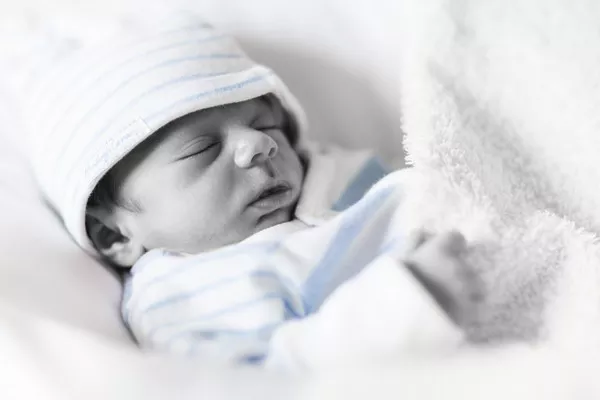Hong Kong is urgently seeking assistance from mainland China to secure a heart transplant for a three-month-old girl diagnosed with a critical heart condition. Secretary for Health Lo Chung-mau announced the dire situation during a recent press event, emphasizing the need for immediate action as the infant, Baby Whitney, faces life-threatening health challenges.
Condition Overview
Whitney has been diagnosed with dilated cardiomyopathy, a serious condition in which the heart’s main pumping chamber enlarges while its muscular wall thins, impairing the organ’s ability to pump oxygen-rich blood effectively throughout the body. As a result, she requires a heart transplant as soon as possible. The Hong Kong Children’s Hospital, where Whitney is being treated, noted that suitable donor hearts for infants must weigh between six and 18 kilograms, with a preference for blood types B+ or O+, although other types may also be acceptable.
Current Medical Status
At present, Baby Whitney is receiving critical care, connected to an extracorporeal membrane oxygenation (ECMO) device in the pediatric intensive care unit (PICU) at the Children’s Hospital located in Kowloon City. This life-sustaining treatment provides cardiac and respiratory support for patients whose heart and lungs are unable to provide adequate oxygen to the body. “She has been placed at the top of the heart transplant waiting list,” hospital representatives confirmed.
Government Response and Initiatives
Addressing the media, Lo Chung-mau expressed deep concern for Whitney’s situation, stating that the Hospital Authority (HA) is committed to doing everything possible to find a suitable donor heart. “With a population of 1.4 billion in the country, any rare disease becomes less rare,” he remarked, highlighting the potential for organ donation given the vast population of mainland China.
The Hospital Authority also clarified that when a potential organ donor passes away without a matching patient in mainland China, a cross-boundary organ donation and matching mechanism is in place to facilitate transplants in Hong Kong. This mechanism is crucial in addressing the pressing need for organ transplants and improving the survival rates for critically ill patients like Whitney.
Plans for Regularization
In a bid to streamline the process, the HA is currently planning to regularize the cross-boundary organ transplant mutual assistance mechanism. Lo revealed that requests have been made to both the National Health Commission (NHC) and the Hong Kong and Macao Work Office of the Communist Party of China Central Committee, both of which have expressed strong support for the initiative.
Lo acknowledged, however, that the existing system could lead to delays. “[The Hospital Authority] would only activate this mechanism upon patients’ requests, which could lead to time delays,” he explained. He underscored the importance of timely action, especially in critical cases.
A Call for Timely Activation
Looking to the future, Lo hopes to see improvements in the organ donation process. He stated that in cases where patients are in critical condition and urgently need an organ transplant, medical staff should be able to activate the mechanism immediately after obtaining consent from the family and the patient, rather than waiting for formal requests to be made.
The Secretary for Health emphasized that the authority is actively working on refining this mechanism to ensure that patients like Whitney can receive the timely care they need. The aim is to mitigate the risk of delays in accessing vital organ transplants.
Challenges in Organ Donation
Despite the optimism surrounding the new measures, the reality of organ donation remains challenging. The limited number of available organ donations for infants poses a significant hurdle. With only a small pool of potential donors, the likelihood of finding a suitable match can be daunting. The medical community is increasingly recognizing the importance of public awareness regarding organ donation to encourage more individuals to consider registering as donors.
In the meantime, the urgency of Whitney’s situation has sparked public interest and concern, with many in Hong Kong following her story closely. The community’s support could play a vital role in raising awareness about the importance of organ donation, especially for children.
Conclusion: Hope Amid Challenges
As the situation unfolds, Baby Whitney’s case highlights the critical need for a robust organ donation framework that can respond swiftly to the needs of patients in dire situations. While the Hong Kong government is taking steps to enhance collaboration with mainland authorities, the journey toward securing a life-saving heart for Whitney is fraught with challenges.
The Secretary for Health’s commitment to refining the organ transplant process reflects a growing recognition of the importance of timely medical intervention. As authorities work to implement these changes, the hope remains that Baby Whitney will soon receive the heart transplant she desperately needs, ensuring a brighter future for her and countless others facing similar health crises.
The Lamey family’s experience underscores the importance of community support, governmental coordination, and public awareness in the fight for life-saving medical interventions. As Hong Kong navigates this complex issue, the emphasis remains on collaboration, compassion, and the urgent need for more organ donors to save lives.
Related topics:


